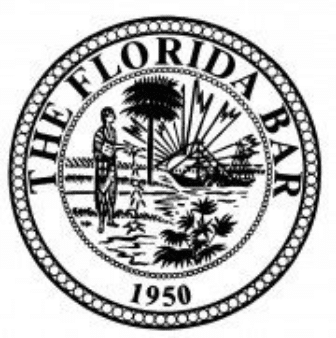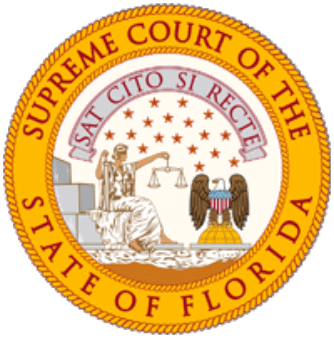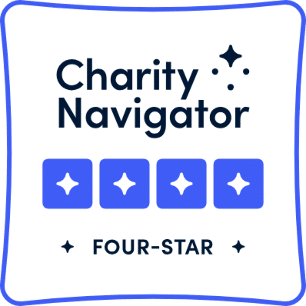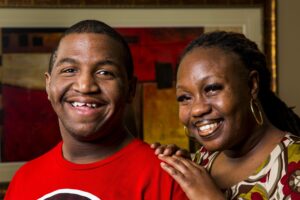
For six years, Kimberly Conyers did everything in her power to regain custody of her son, writing letter after letter to the judge in her case, but it wasn’t until she got pro bono help – both from a lawyer and a psychologist – that she was able to overcome the one barrier that had always stood in her way.
Conyers had voluntarily given custody of her son to her aunt in 2007 after she was sentenced to two years and seven months in prison for a drug charge. When she was released in September 2009, her aunt refused to relinquish custody, and the judge said he wouldn’t consider her petition for custody until she’d had a parental evaluation.
“When I went calling around nobody knew what a parental evaluation was, and then when I did find doctors that knew they were trying to charge me hundreds and up to $1,000 for the evaluation. And I was working a minimum-wage job and paying rent and lights, and I couldn’t afford to pay all the money for the evaluation,” Conyers said.
That’s when she sought help from the Legal Aid Foundation (LAF) Tallahassee, a Florida Bar Foundation grantee, but she remained on a waiting list for five years until the organization launched a new pro bono program called Thunderdome Tallahassee. The program pairs participants with mentors and provides professional development opportunities in family law, which makes up 90 percent of LAF’s cases.
Sid Bigham, then LAF president, brought the idea for Thunderdome back from an American Bar Association Equal justice Conference in 2014. Anne Munson, then LAF executive director, customized Thunderdome, modeling it somewhat on Leadership Tallahassee, a Chamber of Commerce program that combines education, service and networking opportunities for a class of participants each year.
“When this idea came forward it seemed immediately different to me because it tackled all the issues we’d been working on for so long with the Board of Governors and the Young Lawyers board on professionalism, on mentoring, on pro bono,” said Sean Desmond, a mentor for the first Thunderdome Tallahassee class and a past Florida Bar Young Lawyers Division president. “Everything we talk about is packaged in this plan. It’s really amazing this program.”
Within months Thunderdome had cleared the LAF’s waiting list of 30 cases, breathing new life into a program that had struggled ever since the Tallahassee Bar Association dropped its mandatory pro bono requirement.
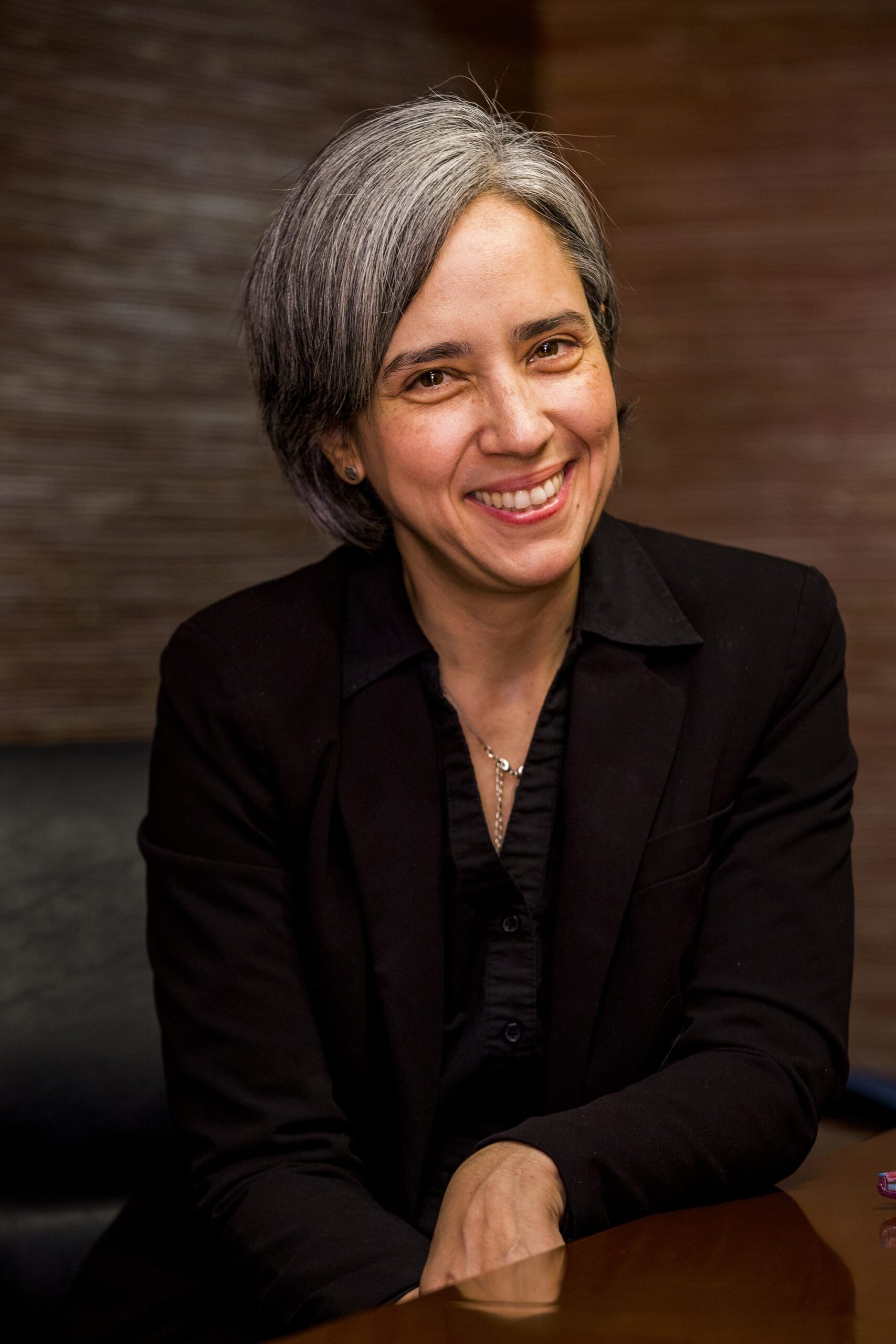
Desmond was a mentor to Gisela Rodriguez, a freshly minted lawyer who took on Conyers’ case, and together their first order of business was to find a way around the thousand-dollar barrier of the parental evaluation.
“When I met with Sean to discuss the case the first thing he said is there is something wrong about this. There is a constitutional aspect to this case because it seems like this judge is denying this person access to court. That’s in the Constitution. Everybody should have access to court, and you cannot put such a huge burden to prevent somebody from having access to court, and it seems like this case just did that,” Rodriguez said. “So we thought we can argue the constitutional aspect, or we can try to find someone to do the evaluation for free.”
Not wanting to get started off on the wrong foot with the judge, Rodriguez opted for the path of least resistance, or so she thought. Cold-calling psychologists and asking them to give away $1,000 worth of services seemed fruitless at first, but finally Rodriguez found Carol Oseroff, a licensed psychologist who was willing to do the parental evaluation at no charge. By this time Conyers’ daughter had come of age and moved back home voluntarily, leaving only her son Jacquez, then 13, in her aunt’s custody.
Still, there were hurdles to overcome, including getting Conyers’ aunt to consent to Jacquez’s participation in the evaluation. Rodriguez had to file an emergency motion and get a court order. Then, although Oseroff’s report was favorable, its recommendations included two different types of drug tests, as well as background checks on both parents and proof of employment.
Since her release in 2009 Conyers had worked and remained drug free. She had no problem with the recommendations, except – once again – the cost. A series of a half-dozen random drug tests would run about $150, plus more than $200 for the follicle test. She paid for the random drug tests, taking them whenever Oseroff called and told her to go. But that still left the follicle test.
“I couldn’t afford that,” Conyers said.
Rodriguez tried to get a lab to do the test for free, but this time she wasn’t successful. So she and Conyers got together and discussed it and decided they had done enough. They had satisfied every other recommendation in the parental evaluation. It was time to let the judge decide.
Conyers’ hearing was in September. The judge’s ruling came down Dec. 15.
After six years, Conyers finally got her son back. When asked if she’d ever given up hope, Conyers didn’t hesitate.
“Never,” she said, her eyes beginning to water. “I don’t know what parent would give up on their kids.”
Jacquez, who is developmentally disabled, is now 14 and happy to be living with his mom and his new baby brother.
When she thinks about the people who volunteered their time to reunite her with her son, Conyers feels overwhelmed.
Lean About The Ways You Can Give“It’s a blessing,” she said. “[Rodriguez] just was amazing, and I recommend anybody to come through Thunderdome.”
Rodriguez, who received the Outstanding Thunderdome Participant Award from the Tallahassee Chapter of the Young Lawyers Division, is equally grateful.
Read More Stories of Justice“I am just thankful to be a part of Thunderdome. I have six cases now, she said. “This is what I wish I could do all day long. If I could, that’s what I would do because I feel so strongly and am so passionate about helping others with things that they can’t really do by themselves.”
Darby Kerrigan Scott, who became LAF executive director in 2015, said the quality of the continuing legal education programs offered through Thunderdome is outstanding, and now the program is involving not just new lawyers but those with experience as well, making it more competitive, comprehensive and diverse.
In the meantime, with new funding from Leon County and the city of Tallahassee to add to The Florida Bar Foundation’s $23,000 general support grant, the LAF will have its first-ever staff attorney, providing the community – and Thunderdome – with yet another resource.
“Thunderdome Tallahassee came at a critical time when LAF was struggling to find enough volunteer attorneys to handle cases and had a long wait list. The program changed all of that immediately, and has continued to allow LAF to keep its wait list at a minimum,” said LAF Executive Director Darby Kerrigan Scott. “Thunderdome also reenergized relationships or forged new ones with partners such as the Tallahassee Bar Association and Young Lawyers Section, Second Judicial Circuit judges, the FSU College of Law and its Public Interest Law Center, Leadership Tallahassee and the Virgil Hawkins Bar Association. Through all of this and throughout its entire history LAF has relied heavily upon, and been extremely grateful for, the support of The Florida Bar Foundation.”
Donate Now Read More Stories of Justice
Make an Impact: Ways to Give